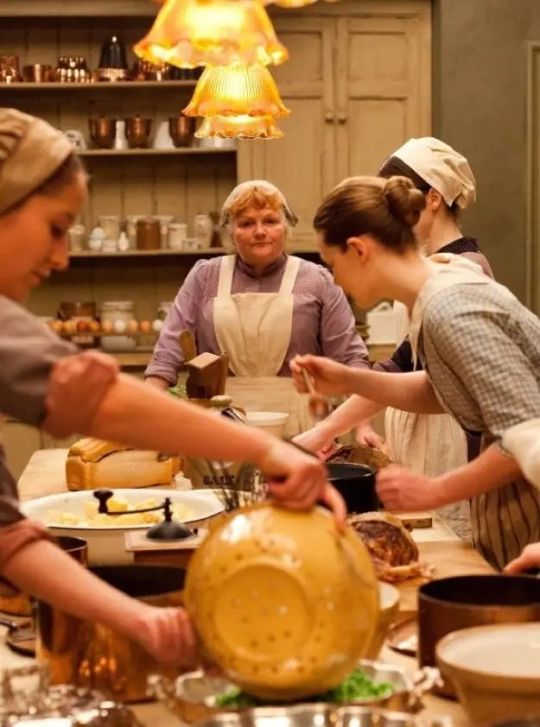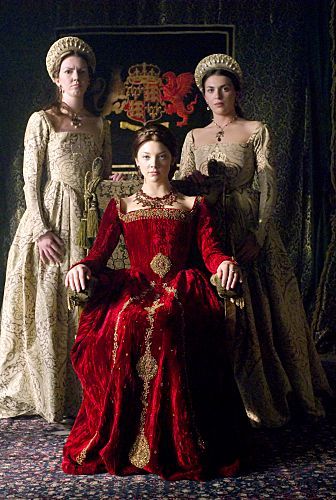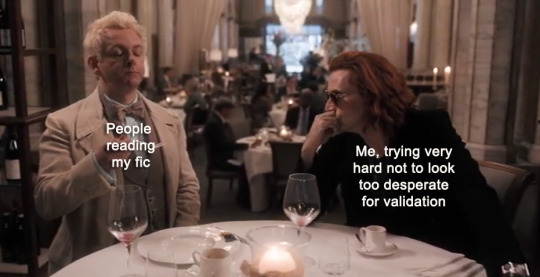Text
Awesome Sites and Links for Writers
Just about every writer out there has several go-to websites that they use when it comes to their writing. Be it for creativity, writer’s block, to put you in the mood or general writing help. These are mine and I listed them in hopes that you’ll find something that you’ll like or will find something useful for you. I’ve also included some websites that sound interesting.
Spelling & Grammar
Grammar Girl — Grammar Girl’s famous Quick and Dirty Tips (delivered via blog or podcast) will help you keep your creative writing error free.
The Owl — is Purdue University’s Online Writing Lab (OWL) it’s a great resource for grammar guides, style tips and other information that can help with your writing, especially academics.
Tip of My Tongue — have you ever had trouble of thinking of a specific word that you can’t remember what it is? Well, this site will help you narrow down your thoughts and find that word you’ve been looking for. It can be extremely frustrating when you have to stop writing because you get a stuck on a word, so this should help cut that down.
Free Rice – is a great way to test your vocabulary knowledge. What’s even better about this site is that with every correct answer, they donate 10 grains of rice to the United Nations World Food Program. So, please disable your adblock since they use the ads on the site to generate the money to buy the rice.
HyperGrammar — the University of Ottawa offers up a one-stop guide for proper spelling, structure, and punctuation on this site.
AutoCrit — the AutoCrit Editing Wizard can check writing for grammar errors, clichés and other no-no’s. It also provides a number of other writing resources as well.
Writer’s Digest — learn how to improve your writing, find an agent, and even get published with the help of the varied blogs on this site.
Syntaxis — it allows you to test your knowledge of grammar with a ten-question quiz. The questions change every time you take the quiz so users are sure to be challenged each time around. It definitely helps writers know if there’s something that they need to brush up on.
Word Frequency Counter — this counter allows you to count the frequency usage of each word in your text.
Tools
Copyscape — is a free service that you can use to learn if anyone has plagiarized your work. It’s pretty useful for those that want to check for fanfiction plagiarism.
Write or Die — is an application for Windows, Mac and Linux which aims to eliminate writer’s block by providing consequences for procrastination.
Written? Kitten! — is just like Write of Die, but it’s a kinder version. They use positive reinforcement, so everytime you reach a goal they reward you with an adorable picture of a kitten.
Information & Data
RefDesk — it has an enormous collection of reference materials, searchable databases and other great resources that can’t be found anywhere else. It’s great to use when you need to find something and check your facts.
Bib Me — it makes it easy to create citations, build bibliographies and acknowledge other people’s work. This is definitely something that academics will love. It’s basically a bibliography generator that automatically fills in a works cited page in MLA, APA, Chicago or Turbian formats.
Internet Public Library — this online library is full of resources that are free for anyone to use, from newspaper and magazine articles to special collections.
The Library of Congress — if you’re looking for primary documents and information, the Library of Congress is a great place to start. It has millions of items in its archives, many of which are accessible right from the website.
Social Security Administration: Popular Baby Names — is the most accurate list of popular names from 1879 to the present. If your character is from America and you need a name for them, this gives you a accurate list of names, just pick the state or decade that your character is from.
WebMD — is a handy medical database loaded with information. It’s not a substitute for a doctor, but can give you a lot of good information on diseases, symptoms, treatments, etc.
Google Scholar - is an online, freely accessible search engine that lets users look for both physical and digital copies of articles. It searches a wide variety of sources, including academic publishers, universities, and preprint depositories and so on. While Google Scholar does search for print and online scholarly information, it is important to understand that the resource is not a database.
The Old Farmer’s Almanac — this classic almanac offers yearly information on astronomical events, weather conditions and forecasts, recipes, and gardening tips.
State Health Facts — Kaiser Family Foundation provides this database, full of health facts on a state-by-state basis that address everything from medicare to women’s health.
U.S. Census Bureau — Learn more about the trends and demographics of America with information drawn from the Census Bureau’s online site.
Wikipedia — this shouldn’t be used as your sole source, but it can be a great way to get basic information and find out where to look for additional references.
Finding Data on the Internet — a great site that list links that can tell you where you can find the inflation rate, crime statistics, and other data.
Word References
RhymeZone — whether you’re writing poetry, songs, or something else entirely, you can get help rhyming words with this site.
Acronym Finder — with more than 565,000 human-edited entries, Acronym Finder is the world’s largest and most comprehensive dictionary of acronyms, abbreviations, and initials.
Symbols.com — is a unique online encyclopedia that contains everything about symbols, signs, flags and glyphs arranged by categories such as culture, country, religion, and more.
OneLook Reverse Dictionary — is a dictionary that lets you describe a concept and get back a list of words and phrases related to that concept. Your description can be a few words, a sentence, a question, or even just a single word.
The Alternative Dictionaries — is a site that you can look up slang words in all types of languages, including Egyptian Arabic, Cherokee, Cantonese, Norwegian and many, many others.
Online Etymology Dictionary — it gives you the history and derivation of any word. Etymologies are not definitions; they’re explanations of what our words meant and how they sounded 600 or 2,000 years ago.
MediLexicon — is a comprehensive dictionary of medical, pharmaceutical, biomedical, and health care abbreviations and acronyms.
Merriam Webster Online – the online version of the classic dictionary also provides a thesaurus and a medical dictionary.
Multilingual Dictionary – that translate whatever you need from 30 different languages with this easy-to-use site.
Writing Software
Open Office — why pay for Microsoft products when you can create free documents with Open Office? This open source software provides similar tools to the Microsoft Office Suite, including spreadsheets, a word processor, the ability to create multimedia presentations, and more.
LibreOffice — is a free and open source office suite. It was forked from OpenOffice.org in 2010, which was an open-sourced version of the earlier StarOffice. The LibreOffice suite comprises programs to do word processing, spreadsheets, slideshows, diagrams and drawings, maintain databases, and compose math formula.
Scrivener — is not a free program, but it’s certainly a very popular one. It’s great for organizing research, planning drafts, and writing novels, articles, short stories, and even screenplays.
OmmWriter — is a free simple text processor that gives you a distraction free environment. So you can focus only on your writing without being tempted or distracted by other programs on your computer.
Evernote — is a free app for your smartphone and computer that stores everything you could possibly imagine losing track of, like a boarding pass, receipt, article you want to read, to do list, or even a simple typed note. The app works brilliantly, keeping everything in sync between your computer, smartphone, or tablet. It’s definitely a useful app for writers when you have ideas on the go.
Storybook — this open source software can make it easier to manage your plotlines, characters, data, and other critical information while penning a novel.
Script Frenzy — scriptwriters will appreciate this software. It offers an easy layout that helps outline plots as well as providing storyboard features, index cards, and even sound and photo integration.
Creativity, Fun & Miscellaneous
National Novel Writing Month — is one of the most well-known writing challenges in the writing community, National Novel Writing Month pushes you to write 50,000 words in 30 days (for the whole month of November).
WritingFix — a fun site that creates writing prompts on the spot. The site currently has several options—prompts for right-brained people, for left-brained people, for kids—and is working to add prompts on classic literature, music and more.
Creative Writing Prompts — the site is exactly what it says. They have 100+ and more, of prompts that you can choose from.
My Fonts — is the world’s largest collection of fonts. You can even upload an image containing a font that you like, and this tells you what it is.
Story Starters — this website offers over one trillion randomly generated story starters for creative writers.
The Gutenberg Project — this site is perfect for those who like to read and/or have an ereader. There’s over 33,000 ebooks you can download for free.
The Imagination Prompt Generator — Click through the prompts to generate different ideas in response to questions like “Is there a God?” and “If your tears could speak to you, what would they say?”
The Phrase Finder – this handy site helps you hunt down famous phrases, along with their origins. It also offers a phrase thesaurus that can help you create headlines, lyrics, and much more.
Storybird – this site allows you to write a picture book. They provided the gorgeous artwork and you create the story for it, or just read the stories that others have created.
Language Is a Virus — the automatic prompt generator on this site can provide writers with an endless number of creative writing prompts. Other resources include writing exercises and information on dozens of different authors.
Background Noise/Music
SimplyNoise — a free white noise sounds that you can use to drown out everything around you and help you focus on your writing.
Rainy Mood — from the same founders of Simply Noise, this website offers the pleasant sound of rain and thunderstorms. There’s a slide volume control, which you can increase the intensity of the noise (gentle shower to heavy storm), thunder mode (often, few, rare), oscillation button, and a sleep timer.
Coffitivity — a site that provides three background noises: Morning Murmur (a gentle hum), Lunchtime Lounge (bustling chatter), and University Undertones (campus cafe). A pause button is provided whenever you need a bladder break, and a sliding volume control to give you the freedom to find the perfect level for your needs and moods. It’s also available as an android app, iOS app, and for Mac desktop.
Rainy Cafe — it provides background chatter in coffee shops (similar to Coffitivity) AND the sound of rain (similar to Simply Rain). There’s also individual volume and on/off control for each sound category.
8tracks — is an internet radio website and everyone can listen for free. Unlike other music oriented social network such as Pandora or Spotify, 8tracks does’t have commercial interruption. Users create free accounts and can either browse the site and listen to other user-created mixes, and/or they can create their own mixes. It’s a perfect place to listen to other writer’s playlist, share yours or find music for specific characters or moods.
111K notes
·
View notes
Text
writing cheats
i know i’ve probably written about these all individually but i’m putting them together in one post. these are writing tricks that are extremely cheap and dirty; when you use them it feels like cheating and honestly by posting them i’m probably exposing all the easy moves in my own work, but more than a writer i am a teacher, so here you go, some writing cheats that have never steered me wrong.
quick character creation
what’s really annoying is when you have two characters sitting at a restaurant or something and the server has to come by. to what degree do you describe the server so that it’s clear they’re just a background character but that they’re not just a faceless form, so that the world has texture without taking up too much space on the page? rule of three, babeyyy: two normal things and a weird one.
she had pale skin and blue eyes but her hair was dyed black like a 2010 emo kid.
he was tall and broad, and he wore a sweatshirt with an embroidered teddy bear on it.
the woman stood there comparing the prices of toilet paper. she had a short angled bob and carried a keychain the length of a trout.
why does it work? it gives the reader something to hang onto, a brief observation that shows the world exists around your narrator. it also works when introducing main characters, but there’s so much action going on that you can’t take time to write a rich long paragraph about them. all you need is a little hook.
quick setting creation
i used to TOIL over descriptive paragraphs. for years i was like, description is my weakness, i must become better at developing imagery. i believed this because a famous writer once projected a paragraph i had written onto a screen and asked my cohort, “count how many images are crafted in this paragraph.” there were none. none! my friends were sitting there like, “we are TRYING” but they couldn’t find any.
i would say that after years of studying imagery development at the sentence level, i am, perhaps, competent at it, but what was more helpful was for me to shrug and tell myself, “i’m just not a writer who does that.”
anyway. my cheat is thus:
there’s not much you can assume about your audience. the audience is not a homogenous whole. but your ideal audience is something you can guess at, and that means you can play around with their existing knowledge and expectations.
if you say your characters are in a tacky shit-on-the-walls restaurant, if your ideal reader is an american who went to restaurants during the maximalist era of franchise design, they will conjure their nearest memory of one of those places. and for those readers who aren’t familiar with it, they’ll use other context clues to conjure that space. the point is, you don’t have to list every single stupid license plate nailed to the wall. you can leave it as one detail of one sentence and let your reader extrapolate from there.
if i say the dentist’s office looked like a gutted 90s taco bell, maybe no ideal audience would have ever seen a place like that, but a lot of people can mentally conjure a dentist’s office and a 90s taco bell and overlay them together to create a weird and fun image.
you can go even simpler than that: a bathroom the size of an airplane lavatory. a tiny studio apartment with a hotplate instead of a stove. a mansion with a winding stairwell. the point is that you want to define the size of the space and its general vibes.
in some ways detailed description can be overrated, because your reader conjures images even in absence of them on the page. and for those readers who can’t mentally conjure images, it doesn’t matter anyway; they take you at your word. the trick is to figure out what details are unexpected, relevant to understanding the story and its characters, and those are the things that you add in.
one other note: after working with hundreds of writers on drafting, for *most* of us it’s difficult to develop images and establish setting in a first draft. it’s nearly always something to be saved for a second or later draft. i think it’s because while we’re writing we tend to put character and action first.
nail the landing
there’s a joke i heard once from a writer i really admire: “you know it’s literary fiction if the story ends with a character looking at a body of water.”
and god it’s so painfully sad and true how easy it is to nail the landing of a given story by ending on a totally irrelevant piece of imagery. the final beat of a story followed by your character looking up at the sky and seeing a flock of birds in the shape of a V flying past. or maybe they’re sitting in their car and they count the rings of a nearby church bell. or maybe they watch an elderly couple walk down the sidewalk hand-in-hand. i don’t know!! when in doubt shove an observation, an image, whatever, something neutral at the end and it’ll sound profound.
(this cheat is the only one that can really bite you in the ass because if the image is too irrelevant you risk tonal incongruity. for use only in the most desperate of times.)
sentence fragments
when writers ask me how to punch up their writing or start developing their own style, my go-to advice is to give up the idea of a complete sentence. fuck noun-verb-object. if you have a series of character actions, knock off the sentence subjects like in script action. if the clause at the end of your sentence is particularly meaningful, don’t separate it with a comma but a period and make it its own thing. if your character is going through something particularly stressful or heinous, that bitch is not thinking in complete thoughts so you don’t have to convey them that way. make punctuation bend to your will!!
rhetorical moves
this one opened a lot of doors for me stylistically. remember that famous writer who called me out on my lack of imagery? i always thought his prose was beautiful, that he’s one of the best living prose writers, etc. once i learned more about rhetoric though, i realized he just employed it a lot.
usually when we talk about beautiful sentences it means a sentence that uses rhetorical devices. the greeks were like, you know what, when we give speeches there are certain ways to phrase things that make the audience go nuts. let’s identify what those things are and give them names so we can use them intentionally and convince people of our opinions.
i love shakespeare, i really do, but one of the big reasons he’s still a household name today and his plays are still performed is because every sentence of every goddamn play utilizes a rhetorical device. the audience is hard-wired to vibrate at the sound and cadence of his writing, like finding the spot on a dog that makes their foot thump. for five hundred years, william shakespeare has been scritching that spot for us.
i have no idea why, cognitively, rhetorical devices are so effective. i’m no rhetorician. all i know is that well-deployed anaphora makes a reader want to throw their panties on stage. my intro to rhetorical devices was the wonderful book the elements of eloquence by mark forsyth, a surprisingly fun read! hopefully that will open some doors for you the way it did for me.
the downside to this is that once you know rhetorical devices, it’s like learning how the sausage is made. on one hand, as a writer, you’ll have a lot stronger grasp of style, but as a reader good prose loses some of its magic.
pacing it out
many writers, myself included, rely on the tried and true “he bit the inside of his cheek” or other some such random action to help pace out dialogue. one time my thesis advisor sat me down and said “you’ve got to take all of those out.”
“all of them?” i said.
“all of them,” she said.
i thought, but that will weaken the text! it didn’t. once i cut what i came to call cheek-biter sentences i never went back. and now when i edit for other people i’m like, look i know where you’re coming from but just cut all these out and see how the scene stands. if it doesn’t feel right you can put some back in. a lot of times when you’re drafting you put those in the way some people say “um.” they’re just sentences you jot while you’re thinking of what the other character says, so from a writing perspective it seems like you’re pacing, but readers don’t read it that way. they just want to get to the next line of dialogue.
but sometimes you really do need to pace out a scene and i think there are other ways to do that that don’t rely on banal physical movements, such as:
interiority: a sentence or paragraph of relevant cognition, bonus points if you weave in background context. good interiority defines the voice of your writing.
observations: i know i just said description is overrated but idk sometimes you just need a character to note the back and forth clacking of one of those desk ball toy things.
character texture: maybe your character notes something about the person they’re talking to. a wilted pocket square. a mole that looks like it needs looked at by a dermatologist. a scar on their forehead. some detail that deepens or complicates our understanding of a character.
narratorial consciousness and access
this one is less a cheat and more a problematic opinion i have that doesn’t win me any popularity in writing circles.
i believe that if you’re writing in first person or close third or any narration which is dedicated to the mind of one character, you are only ever obligated to convey the experience of that character’s consciousness. and nothing else.
by that i mean, if your point of view character is unobservant? then they’re not going to even notice the flight attendant is missing one of their canine teeth. if your pov character is focused and obsessive, they’re going to think lavish, detailed paragraphs about that which they’re obsessed with and have no acknowledgement of the rest of the world. if your pov character has no understanding of time, does your story even need to be linear?
defining the scope of a narrator’s cognition early on can give you parameters in which to work. even if you don’t consciously do this, you still do it. if you write in third person limited present tense without really thinking about it, that’s your scope. i’m just pointing out you can choose to do it differently. you get to define your narrator.
whenever we talk about narration we also talk about information access and the order of information being revealed/conveyed. writing must always be in order; even if you’re writing multiple concurring things, it still has to be rendered on the page in order one after the next, because the human mind can’t read two sentences over top of one another.
if we’re restricted to the mind of a character, that means we’re also restricted by their knowledge and experiences, and this can be used to your benefit. i don’t want to take too much space for this but i do talk more about the relationship between narration and reality here.
in short, you the writer get to chose
what the reader knows,
in what order they know it, and
its relationship to the presumed real events of the story, which develops the (un)reliability of your narrator
okay going to cut this off now before i go on more rants about narrative scope. i hope you found this helpful and go on to put some of these nasty lifehacks in your own writing!!
8K notes
·
View notes
Text
Me: I’m gonna read this story without skimming
My adhd ass seeing long paragraphs:

57K notes
·
View notes
Text
me: *starts reading a new 100k+ words fic at 2 in the morning*
the 75 fics that have been in my ‘marked for later’ list for 6 months: am i a joke to you?
25K notes
·
View notes
Text
My my.. I haven’t been here for sooo long thank you @pe-ersona :)
This is also from an untitled wip that will never be here ‘cause it’s in spanish :P
Daniel watches the girl being thrown out the side door of the truck, feet tied. He quickly gets off the motorcycle, reaching the now bloody girl with the phone in hand, the girl cries but does not seem to answer, the ringtone continues.
No edited (πーπ)tagging: @anomaly00 @writingmoments @draw-thy-sword
Last Line Tag
I was tagged by @sharraus and @novel-scribe a long while back and @dustylovelyrun thank you! I’ve been getting to these tags late because I have embarrassingly not written anything in a while, but I finally have something from another new WIP (I know, I know!) that I’m not using for edits any time soon so here you go:
“It’s about time you wake up and live in the real world, June.”
“And it’s about time you wake up and realize reality isn’t as cut and dry as we make it out to be.”
Tagging if you’d like: @the-orangeauthor, @the-moving-finger-writes, @unmellowyellowfellow, @jessicacaseyauthor, @writeherewaiting, @redpaperowl @anyone who wants to do this feel free to say I tagged you because I never know who to tag anymore
103 notes
·
View notes
Text
I choose........ Left the door closed :)
Dear Rem taglist (@sunshineomeara @authoressasusual @cluelessbuttercup @sunlight-and-starskies) ,
i know i haven’t posted any Rem content for a long while so i found something for you until i finish Evan…Which (1) collective gift from the list of short stories/one shots/AUs/aesthetic vomit would you like:

oxox, pe-ersona
p.s. I won’t Say whicH one Is my favoriTe and moSt cutE RemxEvan. alSo if you wanT to be addeD/Removed from taGliSt, lmk :)
8 notes
·
View notes
Text
Fantasy Guide to Royal Households and How they Work

When I say Households, I mean the entourage that follows around the royal family. The household went everywhere with them to care for their needs from the people who would empty their chamber pots to their noble companions. Most royal households are basically the same as noble ones, only on grander scale. Every royal had a household and an entourage as well as every noble at court.
Palace Personnel ~ The Commons

The commons were an intregal part of every household. They made up perhaps 80% of the work force. Royal courts were often on the road and never spent more than a few months at every palace. The court was constantly moving. Some positions were not permanent, meaning certain servants did not travel with the court because they were employed at the palace only. They would be paid by the Monarch's paymaster.
Scullion: The scullion was a relatively easy position to fill so they were often changed as the court went from palace to palace. They would be responsible for scrubbing and cleaning the servants quarters and the kitchens. They would scrub floors with lye, scour pots with sand, sweep put the fireplace and clean up after the other servants. They were the first to rise in a castle and tasked to light all the fires in the kitchens. Scullions would just be employed to the palace and serve a multitude of chambers
Laundress: The laundress was responsible for the cleaning of anything made of fabric in the household. Since they are handling unmentionables, they knew what happened behind closed bedchamber doors. They knew when the King visited the Queen or hadn't, they knew when marriages were consummated or not and they knew when the Queen and royal women were not pregnant. They often sold secrets to pad their pockets. Laundresses might be permanent staff but sometimes not.
Minstrels: The minstrel was a commoner hired to play an instrument or sing for the entertainment of the royal. A royal might staff a few at a time but they would always have one on hand. The minstrel would likely come with their masters as they travelled. The minstrel might serve the main royal household but a royal might retain their own.
Cook: The cook was one of the most important servants in the household. They would have the task of overseeing the running of the kitchens and keeping supplies in order. They would likely be on call at all times. Henry VIII's cook was often woken in the night because his royal master wanted a midnight snack. The cook was a valued member of the household and would have been highly sought after if they were a very skilled cook. They would have travelled with the joint. Cooks were apart of the greater royal household but often royals retained private cooks for their own use.
Maidservant: The maidservant cleans the castle. She would sweep the floors, scrub them, empty the chamberpots, get rid of the ashes from the fire and ready the fire for later. She would make up the bed or strip it for the laundresses. She would wash anything that needed washing including furniture and ornaments. She was likely not a travelling servant and would be strictly employed at a single palace.
Jester: The jester was the hired entertainer. Working under the master of revels, the jester had the daunting task of making the monarch and their family laugh. They would tell jokes, tell stories, cause havoc in the court for laughs and lighten the mood. The most successful jester of all time was Will Somers, jester to Henry VIII. Will broke bad news to the infamously bad tempered monarch and got away with things that would have sent others to the block. Will survived most of Henry's reign, his head intact. Jesters would be apart of the main household though each royal might have one of their own.
Positions within the Royal Household ~ Noble


Nobility were always welcomed at court. They eat at court, slept at court and were cared for by the monarch. Some nobles had to sing for their supper and most were hired as royal servants. They weren't exactly scrubbing floors and would be paid handsomely with land that would generate wealth for them
The Steward/Seneschal: This person was the head of the royal's staff. They would have the task of running the lands and servants their master or mistress. The steward served as a backup and assistant in all the tasks even representing their master or mistress when they were unavailable. Would be a high ranking noble. Each royal household would have them.
Treasurer of the Household: The treasurer was the accountant and pay master. They would be in charge of ensuring debts were settled, wages were paid and the household was running within the budget. This was a coveted position because it gave the treasurer insight into the financial situations of the royals. Such info was wroth its weight in gold. Each royal would have one.
Usher: The Gentleman Usher would be in charge of escorting guests into the royal chambers and into the royal presence. They would act as a go between their royal master/mistress and the guest often going back and forth with messages. It was just as coveted as the position of chamberlain but with less responsibilities.
Master of Horse: The Master of Horse was in charge of seeing to the horses of their master. They would oversee the grooms or the stableboy/hands who were employed at the stables to actually care for the horses. The master of horse would ensure that the stables were in order and the horses were up to parr in order to bear royalty across the kingdom. Each royal would have one but there would a main one who acted as overseer.
Master of the Wardrobe/Mistress of the Robes: These are the nobility who are employed to look after the clothes of the royal they serve. This would mainly involve a managerial position, overseeing the inventory of the royal wardrobe (a warehouse like building that housed the clothing) and placing orders for new clothes. It was a tidy job that rarely involved getting the hands dirty. Each royal would have one.
Chamberlain/Valet: The chamberlain is employed to look after the Lord's bedchamber. This was the most sought out position as they effectively were the gateway into the royal presence. Their main task was making sure their boss was comfortable and happy. Could be a well born commoner or a noble. Each royal would have one.
The Page: All royal households had pages. They would be a young noble boy about seven years old sent to their royal master. He would be in charge of tidying up after the lord, carrying messages to other servants and occupants of the castle and serving him at meals. Unlike others on the list, the page would not be paid. His experience was his payment as he would learn the running of a court and how to be courtier. Each royal would have one.
Squires: Squires were like pages though they only served the men. They would accompany their royal master to battle, look after his armour and mail, ensure that his lord's horse was saddled, caring for their master's weapons. The squire would always be a young nobleman on the cusp of becoming a knight.
Governess: The governess is a noblewoman woman employed to oversee the Monarch's children's household. She would be the first teacher a royal child would have and would oversee the nursemaids who would have care of the physical person of the child. She would be appointed when the child was four or five. Notable governesses include Katherine Swynford (wife of John of Gaunt and mother to the Beaufort line), Margaret Pole (wife of Tudor Loyal Sir Richard Pole, sister of the last York heir Edward of Warwick, daughter of George Duke of Clarence and niece to King Edward VI and Richard III), Kat Ashley, Margaret Bryan, Madame de Maintenon and Baroness Lehzen. Most unmarried Princesses retained their governesses while Princes generally outgrew their governesses after they were breeched.
Gentlemen of the Privy Chamber: They were the male companions of a King or Prince, sort of like ladies in waiting but manly. They would accompany the King or Prince everywhere they would go and shared duties with Groom of the Stool (royal toilet paper dispenser) and the Chief Gentleman of the Chamber (overseeing the staff and maintaining the chamber). They would help their master get ready, serve him at the table and organize hunting and games to keep him entertained. Gentlemen and companions where often chosen for their connections as well as their master's own opinion. Henry VIII's gentlemen included: Sir William Compton (ward of Henry VII and heir to rich lands), Sir Henry Norris (the grandson of William Norris who fought with Henry's father at Stroke and a relation to the Yorkists Lovells), Sir Anthony Denny (son of Sir Edmund Denny Baron of the Exchequer) Sir Michael Stanhope (brother in law to Edward Seymour, Duke of Somerset), Charles Brandon (ward of Henry VII and son of Tudor Loyalists)
Ladies in Waiting and Maids in Waiting or Maids of Honour: These are the female attendants to the Queen or Princess. Ladies in Waiting were married while the Maids were unmarried. They would have to attend their mistress wherever she went, help her get ready, keep her chambers in order, write letters for the Queen and maintaining her honour. They were chosen for their connections. Using Katherine of Aragon as an example, her Ladies in Waiting included: Maria de Salinas (daughter of Juan Sancriz de Salinas secretary to Isabella, Princess of Portugal and a Spanish courtier in the service to Katherine's parents, wife of Baron Willoughby de Ersby), Elizabeth Howard (the daughter of Thomas Howard, 2nd Duke of Norfolk, sister to Thomas Howard, 3rd Duke of Norfolk and wife to Thomas Boleyn, ambassador to France), Anne Hastings (daughter of William Hastings, 1st Baron Hastings, wife to George Talbot, Earl of Shrewsbury and Lord Steward.), Agnes Tilney (wife to Thomas Howard, Earl of and 2nd Duke of Norfolk.), Elizabeth Scrope (wife of John de Vere, Earl of Oxford, a loyal Tudor lord), Margaret Scrope (wife of Sir Edmund de la Pole, Earl of Suffolk cousin to the King), Anne Stafford (sister of the Duke of Buckingham, married Sir George Hastings, Earl of Huntington and daughter of Henry Stafford, 2nd Duke of Buckingham (cousin to the King) and Lady Katherine Woodville (sister of King Henry VIII's grandmother and his great aunt by her marriage), Elizabeth Stafford (sister to Anne Stafford wife Robert Radcliffe, Lord Fitzwalter and Earl of Sussex around). Their connections are what got them their places and you can see why they were chosen.
Accommodation

Accommodation can be a difficult thing to sort both as a writer and a steward. You might have a palace of 200+ bedchambers in which you must house a staff of 500-/+, a varying amount of nobles, the royal family (of a varying amount) and their own households. When assigning rooms it is best to think of a Russian nesting doll. Start from the inside and work your way to the outside.
The best rooms go to the monarch, their consort and their children/siblings/parent(s). These chambers would include the bedroom, a drawing room/ common area, a privy, a closet (a small chamber that can be used for prayer or work). They would be furnished with the best cloth, the best candles and whatever furniture brought by the resident since most royal courts travelled from palace to palace. They will also have chambers for their personal servants such as ladies in waiting and grooms.
The second best set of rooms would go to the highest ranking nobles/people in the court. These rooms would be less fancy and a little smaller. These would be given to from titled nobility descending from those of Ducal rank (Dukes/Duchesses) or even members of the council such as Thomas Cromwell in Tudor times.
The next set would be considerably smaller, perhaps minus a closet or a drawing room. Given to lower nobility.
The next level of chambers would be smaller perhaps only the bedroom and a common area given to minor nobles.
The last set of rooms would be small and only hold enough room for a bedroom. Servants would have to sleep on the ground on pallets beside their masters.
Any other guests at court would have to stay at off-site locations around the palace in the city. Some nobles at houses around major palaces just in case they arrived late or were kicked out of court.
17K notes
·
View notes
Text
What’s your passion that always ends up in your work?
Been tagged to answer this question by @rumpixel! It’s indeed a very interesting question and I thought quite a bit about it, cause there are definitely some things that tend to end up in my works:D
Art: I just have to have artistic characters. Usually, they’re the main ones. Be it writing, drawing, painting, playing various instruments, dancing, singing, crafting, they all just gotta do something artistic. Express urself through art, my children!
Introversion: I guess it’s not a passion, but I just really like making main OCs introverts. Am I capable of making an extroverted protagonist? most likely not tbh
I can’t really think of anything else right now, but I think I mostly incorporate some more personal things? Ye
Tagging @writing-with-melon @llesbianwrites @whisperinghallwaysofmirrors @quilloftheclouds @linneaeliam @anomaly00 @cluelessbuttercup if you wanna tell us yours!
17 notes
·
View notes
Text
last line tag
I’ve been tagged by @phantom-stargazer and @milkyway-writes ages ago, sorry for getting to this so late, but here it is! I always love this tag :3
“Norjua wasn’t sure when this “Saturday” was supposed to take place, but he guessed it couldn’t be too far. Maybe he’d meet that woman again and maybe this time she’d be chattier. Odds were against him, though, at least judging by how she reacted to him. That would be an issue for a later time, though.
Now, he had a different matter at hand—how would he survive the next day?“
Tagging @llesbianwrites @whisperinghallwaysofmirrors @rumpixel @tea-and-pirates @thoughtbloom @cluelessbuttercup @anomaly00 if u wanna
6 notes
·
View notes
Photo

nothing beats the smell of old books. @ Rijksmuseum.
6K notes
·
View notes
Text
dipper: it sounds like bones breaking?
bill: bones? where we’re going we won’t need bones
dipper: whAT DOES THAT MEAN?!?
2K notes
·
View notes
Note
Hey friendo! How goes the NaNo? What's something that's changed since you started? What's something you still love?
Hi! Nano is going slower than I would have wish, but keeping going :’D
A lot of thing have changed since the begging, but few days ago I set my outline in stone, to at least try to finish half the novel at the end of the month (πーπ)
thanks for the ask <3
3 notes
·
View notes
Text
Thank you for the Tag @pe-ersona <3
I find World and Right from my wip Magic Bloom:
“The world is fragile, filled with people of all kinds, trying to be more than the next in line, waiting for an opportunity to be happier than yesterday, doing things… worse than yesterday.” — Sia (Chapter 3)
—
“If you love her, you will do the right thing, and give her to me.” — Leonora (Prologue)
tagging (if you want) @anomaly00 @gemini-writes @draw-thy-sword
Find the word!
world, gift, or right
Reblog for one, all three, or just to boost! For any kind of writing that you please! Feel free to tag a friend!
72 notes
·
View notes



